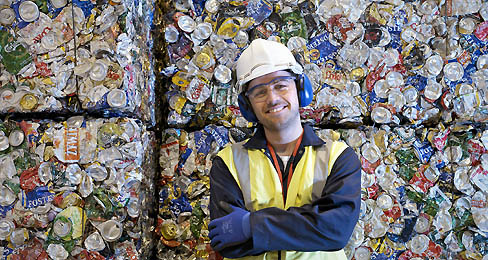Earth Day

The first Earth Day was celebrated on April 22, 1970.
Energy & Waste
The average American produces more than four pounds of garbage per day.
Over the course of a year, that is more than 1,600 pounds of garbage per person.
In the U.S.A., organic waste is the second-highest component of landfills, which are the largest source of methane emissions.
The U.S. wastes 30-40% of its food supply, more than 20 pounds of food per person every month.
Almost half of the food in the U.S. goes to waste—approximately 3,000 pounds per second.
The recycling rate has increased from less than 10% in 1980 to more than 34% in 2011.
Plastic
Every year, Americans throw away enough paper and enough plastic cups, forks, and spoons to circle the equator 300 times.
In 2012, the U.S. produced 32 million tons of plastic. Only 9% was recovered for recycling.
It takes about 450 years for plastic beverage bottles to break down in a landfill.
The energy saved by recycling one plastic bottle can power a computer for 25 minutes.
Glass
It takes approximately 1 million years for a glass bottle to break down in a landfill.
The energy saved from recycling one glass bottle will operate a 100-watt light bulb for four hours.
Producing glass from new materials requires 30% more energy than using used glass.
Paper
Americans use about 69 million tons of paper and paperboard each year.
Preventing one ton of paper waste saves between 15 and 17 mature trees.
By recycling 1 ton of paper, we save enough energy to heat a home for six months.
Water
Almost 97% of the world's water is salty or otherwise undrinkable. Another 2% is locked in ice caps and glaciers. Only 1% is usable for agriculture, manufacturing, and personal needs.
The average American uses about 100 gallons of water per day and more than 100,000 gallons of water per year.
Every square mile of the oceans contains more than 46,000 pieces of floating plastic.
About 8 million metric tons of plastic goes into the ocean each year.
The U.S. consumes 3.9 trillion gallons of water every month.
There are 5 trillion pieces of floating plastic in the world's oceans.
Sources: Environmental Protection Agency, Associated Press, Clean Air Council, Recycle Across America, World Food Day, The Water Information Program, PLOS













